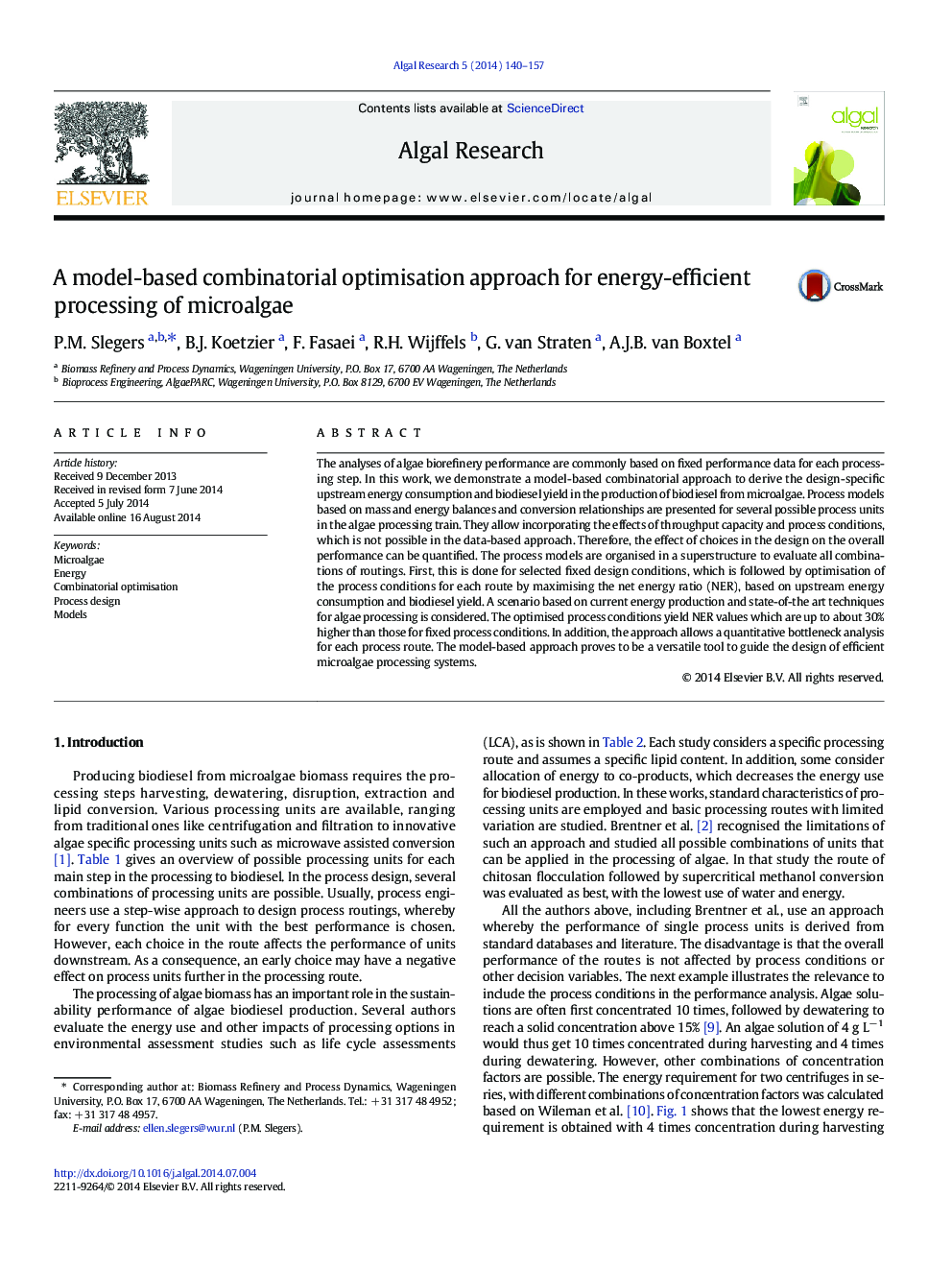| Article ID | Journal | Published Year | Pages | File Type |
|---|---|---|---|---|
| 1742102 | Algal Research | 2014 | 18 Pages |
•Demonstration of a model-based combinatorial approach to optimise algae processing•The effect of choices in process design on overall performance can be quantified.•Application of the approach leads to improved performance and product yield.•The approach can guide process design and indicate critical process steps.
The analyses of algae biorefinery performance are commonly based on fixed performance data for each processing step. In this work, we demonstrate a model-based combinatorial approach to derive the design-specific upstream energy consumption and biodiesel yield in the production of biodiesel from microalgae. Process models based on mass and energy balances and conversion relationships are presented for several possible process units in the algae processing train. They allow incorporating the effects of throughput capacity and process conditions, which is not possible in the data-based approach. Therefore, the effect of choices in the design on the overall performance can be quantified. The process models are organised in a superstructure to evaluate all combinations of routings. First, this is done for selected fixed design conditions, which is followed by optimisation of the process conditions for each route by maximising the net energy ratio (NER), based on upstream energy consumption and biodiesel yield. A scenario based on current energy production and state-of-the art techniques for algae processing is considered. The optimised process conditions yield NER values which are up to about 30% higher than those for fixed process conditions. In addition, the approach allows a quantitative bottleneck analysis for each process route. The model-based approach proves to be a versatile tool to guide the design of efficient microalgae processing systems.
